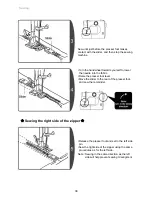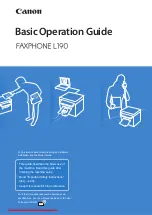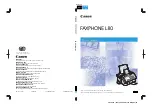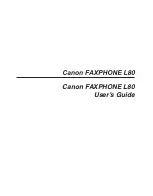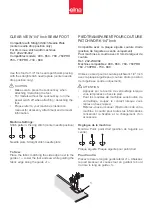
44
Special specifications
2. Using the presser foot pressure adjuster
The presser foot pressure adjuster may differ from model to model.
侀
Push-down type
侀
<Push-down type>
Sewing normal fabric and thick fabric:
For normal straight or zigzag sewing, press
down "A".
Sewing thin fabric:
Push down outer ring "B" to pop out pin "A".
Push down pin "A" about half way.
侀
Rotary type
侀
<Rotary type>
Sewing normal fabric and thick fabric:
Dial: Align "3" with the upper surface of the
face cover.
Sewing thin fabric:
Dial: Align "2" with the upper surface of the
face cover.
Summary of Contents for ESM21
Page 1: ......
Page 34: ...33 Sewing It is easier to sew accurately if a blind stitch foot is used Optional Accessory ...
Page 54: ...53 Others ...
Page 55: ......









